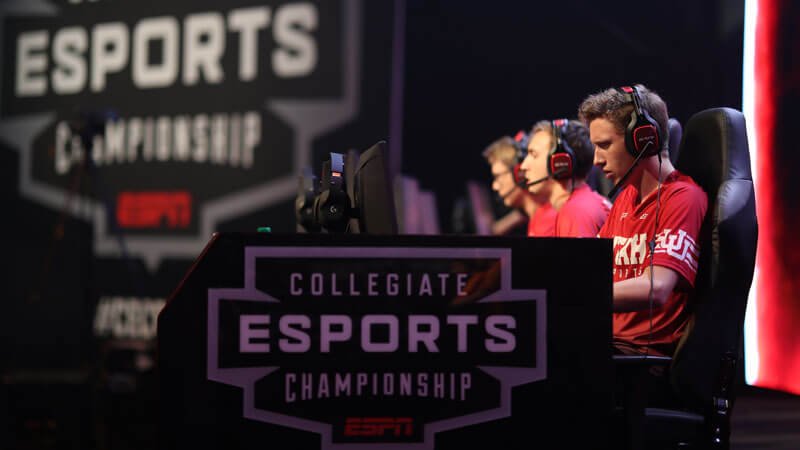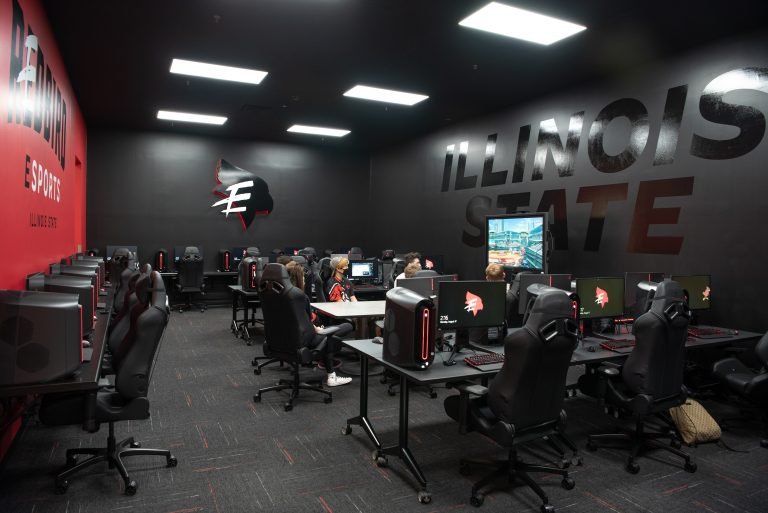Redbird Esports’ Ultraviolet on the collegiate esports experience

From August of 2020 to July of 2021, American Tornado was the best team in North American Contenders. In that time span, the squad won six of the eight contenders tournaments they entered, with the team finishing second and third respectively in the other two.
By July, the team had won three straight contenders titles. It seemed like the only team who could stop American Tornado was American Tornado, and so that’s what they did.
After winning Contenders North America: July, the team took to Twitter to announce that they would be disbanding.
The move left many in the Overwatch community stunned. What would happen to the players from the team? Who would step up to take the throne in North American Contenders?
Two days later, those questions were answered. Three members of American Tornado’s core, alongside Contenders mainstays such as LukeMino and Iron, joined Redbird Esports over at Illinois State University.
Since then, Redbird Esports have proven themselves to be the kings of Contenders, winning the September tournament via a dominant sweep of the Uprising Academy.
READ MORE: Asian Games 2022 medal events include LoL, Dota 2, and more
After the victory, I got a chance to chat with Redbird Esports’ Benjamin “UltraViolet” David about his move to the collegiate scene and the collegiate esports experience.
Q. You and American Tornado had just won Contenders July when you guys disbanded and you made the move to the collegiate scene. What was your thought process as you made the decision to move to the collegiate level?
UltraViolet: I think collegiate was a better move for those who were old enough at American Tornado because we could still play in Contenders while getting an education on a scholarship at the same time. I also got to meet teammates/friends in person so it was just a win-win situation as opposed to just staying in contenders and nothing else.
Q. Collegiate esports is growing each and every year with more and more colleges offering varsity esports programs. What was it about Illinois State that made it more appealing than other colleges?
UltraViolet: The main reason was that Wheats (Head coach of Redbirds Esports and formerly American Tornado) was already committed to ISU anyways for his education. As a result some of my former teammates also wanted to go so I decided to go with them. Even in collegiate winning is still the highest priority for me, so I wanted to go to a collegiate team that I thought would be able to win at the highest levels of competition available. I guess I was right after our first month of contenders.

Q. Through your limited experience as a collegiate esports player, what do you think are the pros and cons of the collegiate scene as opposed to the traditional path to pro model.
UltraViolet: In North America, a lot of the talent is still in high school so building a collegiate roster will always be limited, as opposed to the path to pro where you can have an American Tornado or ATL Academy where about half of the team is under 18. Other than that and the slightly diminished practice time due to schoolwork, collegiate is better in every other way. The in-person/LAN experience and the free education, while still being able to consider Overwatch League (OWL) offers in between semesters makes this option more flexible than it might seem.
Q.You briefly mentioned the addition of school work in the last question. How has it been balancing your courses and studies while practicing both with your team and as an individual?
UltraViolet: It’s honestly not too bad most of the time. We were told to take only 4-5 classes so that we could manage, and we still scrim about the same as we would if we weren’t in college. The courses are a little bit more demanding than high school, but since it’s only 4 classes instead of 7 (that I had in high school) it hasn’t been bad.
Q. After going through the recruiting process and having played in a collegiate setting what would be your advice for young people who are considering entering the world of collegiate esports.
UltraViolet: If you want to make it to OWL you have to be playing at the highest level of competition for scouts to see. If you’re going to collegiate because you are high rank in Overwatch, like competing, and can get a scholarship, that’s a completely valid option and you should go for it. But if you want to play in OWL you have to play on teams that OWL scouts will watch like a top collegiate/contenders team.
What’s next for collegiate esports?
Collegiate esports continues to grow year after year. With programs popping up all over North America it has become easier than ever for talented esports players to get an education for their skills.
Game developers such as Blizzard are getting in on the action too. Blizzard recently announced the $27,000 Overwatch Collegiate Homecoming tournament which top collegiate teams, such as UltraViolet’s Redbird Esports, plan to attend.
More information on Overwatch Collegiate Esports is available here.


